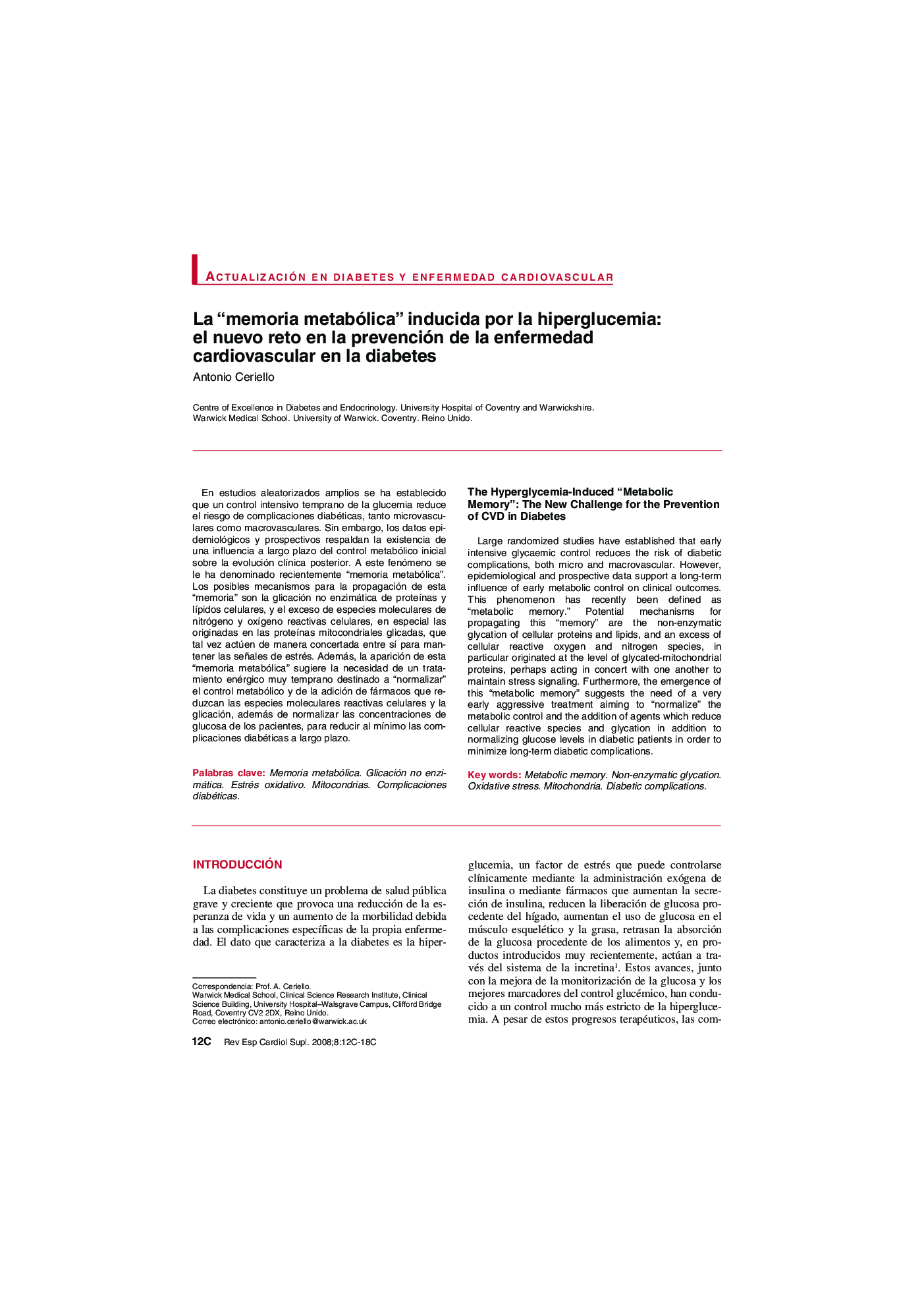| Article ID | Journal | Published Year | Pages | File Type |
|---|---|---|---|---|
| 3019662 | Revista Española de Cardiología Suplementos | 2008 | 7 Pages |
Abstract
Large randomized studies have established that early intensive glycaemic control reduces the risk of diabetic complications, both micro and macrovascular. However, epidemiological and prospective data support a long-term influence of early metabolic control on clinical outcomes. This phenomenon has recently been defined as “metabolic memory.” Potential mechanisms for propagating this “memory” are the non-enzymatic glycation of cellular proteins and lipids, and an excess of cellular reactive oxygen and nitrogen species, in particular originated at the level of glycated-mitochondrial proteins, perhaps acting in concert with one another to maintain stress signaling. Furthermore, the emergence of this “metabolic memory” suggests the need of a very early aggressive treatment aiming to “normalize” the metabolic control and the addition of agents which reduce cellular reactive species and glycation in addition to normalizing glucose levels in diabetic patients in order to minimize long-term diabetic complications.
Keywords
glucosa plasmática en ayunasECAUKPDSiNOSGPADCCTEDICECVEstrés oxidativoEpidemiology of Diabetes Interventions and ComplicationsÓxido nítricoEnfermedad cardiovascularOxidative stressmetabolic memoryAgediabetic complicationsUnited Kingdom Prospective Diabetes StudyMgOMitochondriaNon-enzymatic glycation
Related Topics
Health Sciences
Medicine and Dentistry
Cardiology and Cardiovascular Medicine
Authors
Antonio Ceriello,
